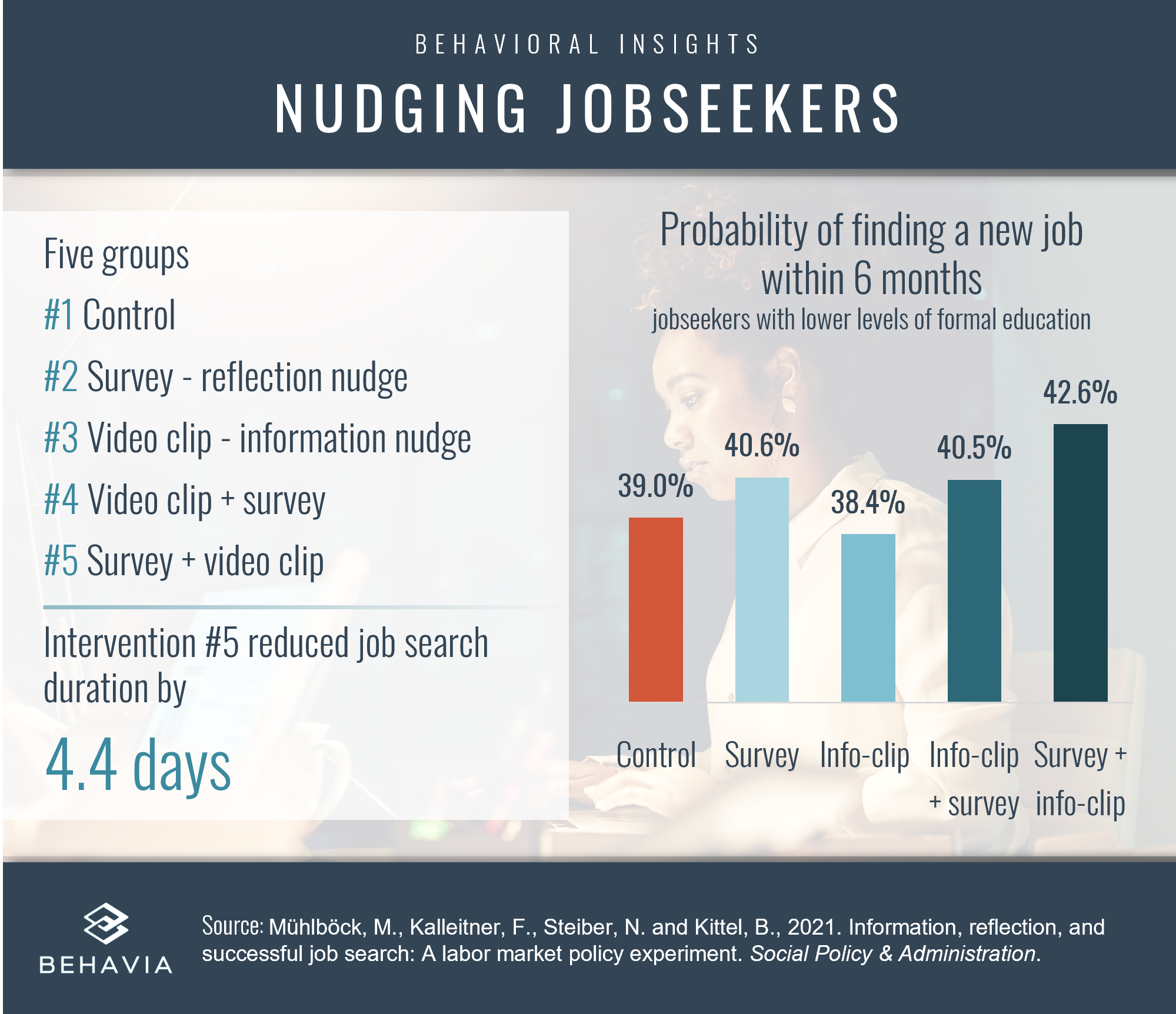Nudging in the labor market

Can prompting self-reflection help young job seekers find a job faster? If so, how much impact can we expect from such interventions?
Mühlböck, Kalleitner, Steiber and Kittel conducted an insightful experiment in cooperation with the Austrian Ministry of Social Affairs to answer these questions. They tested different combinations of an “information nudge” (a short video clip) and a “reflection nudge” (a short online survey) and examined their effects on the job search period of young jobseekers.
Their experiment revealed that the effectiveness of their nudges varied with the target group: While the effect on all jobseekers was only moderate and not significant, the combined information and reflection nudges had a significant positive effect on jobseekers with lower levels of formal education. Their probability of finding employment within a six month period increased by 3.6 percentage points compared to the control group.
While the effect size may seem small, such a low cost intervention is relatively efficient. However, a lack of self-reflection is likely to constitute only one out of many reasons why someone is unemployed. The key to enhancing the effectiveness of behavioral labor market interventions is to first identify the major root causes that prevent (a specific segment of) jobseekers from finding new jobs.
Link to the original article: https://doi.org/10.1111/spol.12754